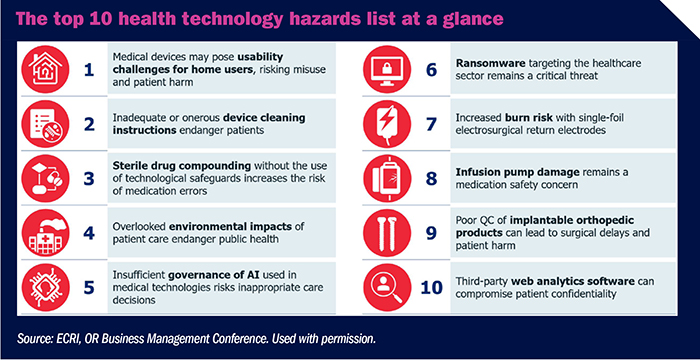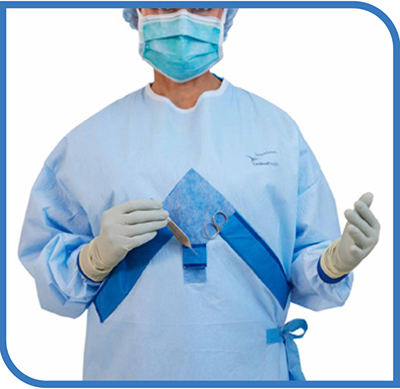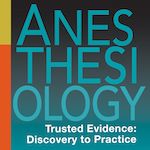 Ambulatory Surgery
Ambulatory Surgery
Unveiling ECRI’s 2024 top 10 health technology hazards list

What is the purpose of the top 10 health technology hazards list, released every year by ECRI? “Our number one goal at ECRI is to reduce preventable harm,” stresses Jason Launders, MSC, former director of operations, device evaluation, at ECRI. “We know that every healthcare provider has a lot they…
Machine learning shows potential to prevent costly, ineffective back surgery

Editor's Note Although lumbar disc herniation surgery can alleviate symptoms of back pain and even prevent disability, the costs exceed the benefits for a sizeable minority of patients, researchers write in a study published February 7 in Jama Network. To address this concern, they investigated whether machine learning algorithms that…
Breaking down the surgical gown: Disposable versus reusable, latest innovations

There is movement happening in the world of surgical gowns. It is driven in part by the COVID-19 pandemic, which brought new focus to the need for adequate stockpiles of personal protective equipment (PPE)—and for PPE that works as intended. Staff need to know their gowns incorporate the latest technology…
Stryker unveils ortho robotic technologies, updates at AAOS meeting

Editor's Note Stryker Corp announced its plans to showcase new joint-replacement technologies and updates to its Mako surgical robotic platform at the American Academy of Orthopaedic Surgeons (AAOS) meeting in San Francisco, according to a February 16 article in The Robot Report. The announcement includes the introduction of myMako and…
State-by-state numbers break down nationwide anesthesiologist shortage

Editor's Note Amid a nationwide shortage of anesthesiologists straining many healthcare systems, new data from the Kaiser Family Foundation offers a state-by-state comparison of the number of anesthesiologists per physician. As of January 2024, the data reveal that Indiana leads states with the most anesthesiologists per physician at 13.12% (1,211…
Study: COVID-19 could elevate risk of surgical mortality, complications

Editor's Note Due to its impact on a variety of organ systems, COVID-19 could elevate perioperative risks even among patients with mild symptoms, according to a study published in the February 2024 issue of Anesthesiology. Focused on patients presenting for elective inpatient surgery between April 2020 and April 2021, the…
Robot could clear stroke-related blockage faster than traditional methods

Editor's Note A magnetically operated robot developed by the Multi-Scale Robotics Lab in Zurich along with several hospitals in Switzerland could be used to treat people in the critical moments following a stroke to remove blockage and resume blood flow. The findings were published February 14 in the journal Science…
Iodine povacrylex outperforms chlorhexidine in skin antisepsis alcohol solution study

Editor's Note A recent study shows show skin antisepsis with iodine povacrylex in alcohol could result in fewer surgical-site infections among patients with closed extremity fractures than antisepsis with chlorhexidine gluconate in alcohol. Published February 1 in the New England Journal of Medicine, the study shows similar results between the…
Study examines high emergency department use by transgender Medicare patients

Editor's Note A study showing greater likelihood for transgender (TGD) Medicare patients to use the emergency department highlights the need to train staff in transgender-inclusive care, the authors argue. Conducted by the Brown University School of Public Health, the study was published February 13 in JAMA Internal Medicine. As reported…
Session: How to make the case for a robotic services line

Editor's Note Robotic surgery can improve patient outcomes, reduce costs, and improve efficiencies and turnover time, but only if it’s done right. In a conference session yesterday, Michelle Toder, MD offered insights, best practices, and lessons learned during two decades of experience in pioneering robotic applications in weight loss and…

 Free Daily News
Free Daily News